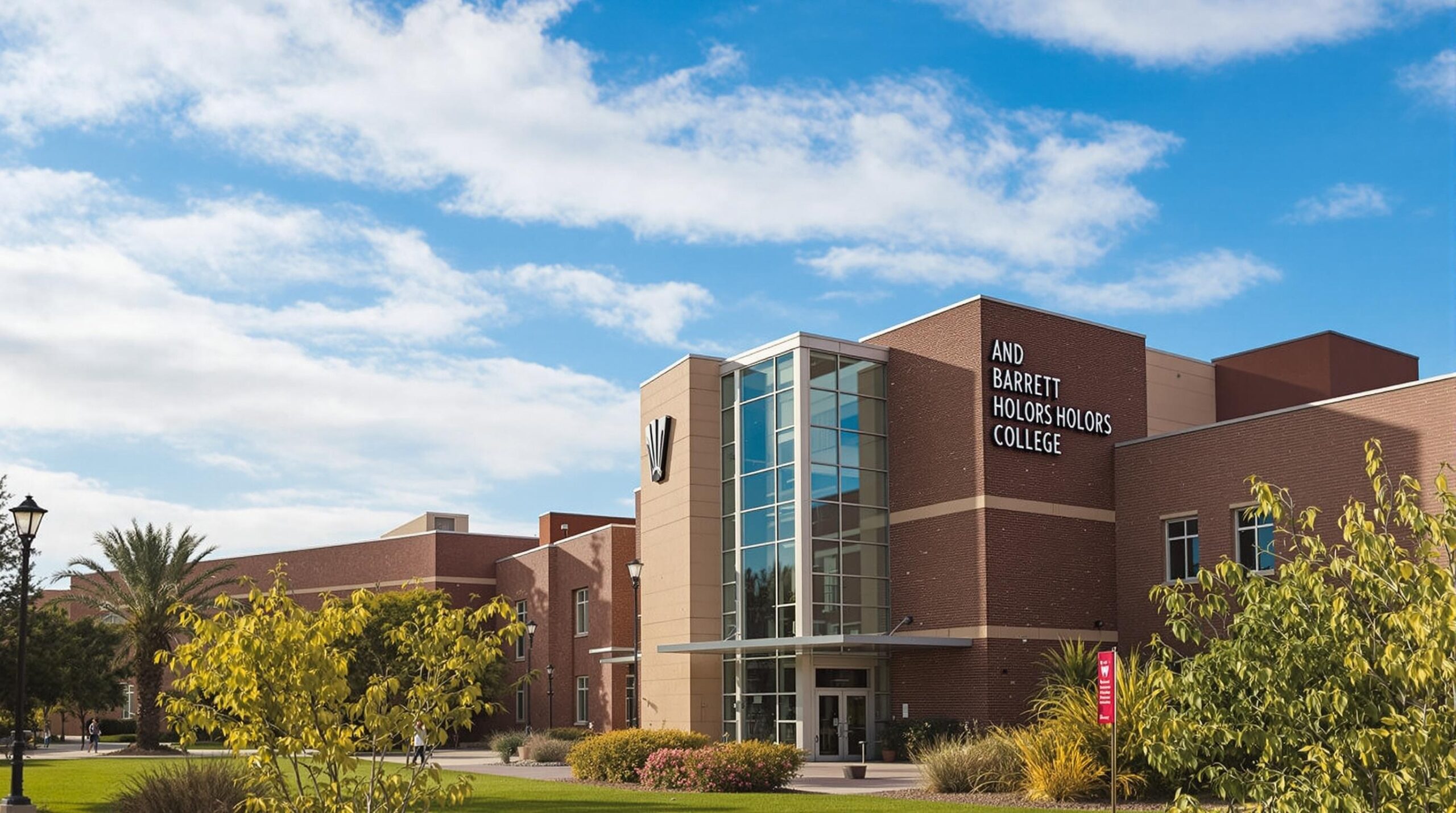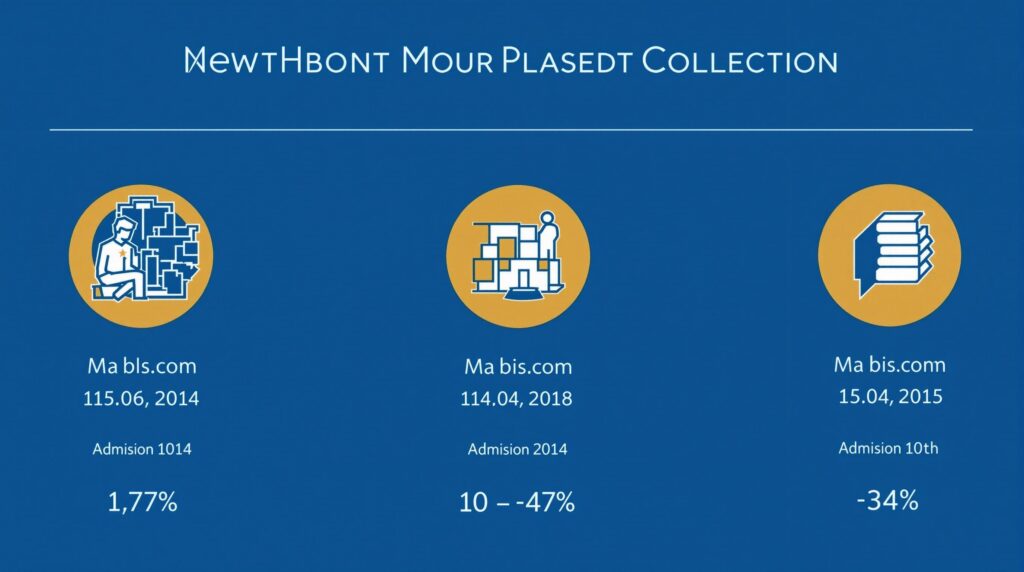Barrett Honors College at Arizona State University maintains a competitive acceptance rate of approximately 30%, making it more selective than ASU’s overall admission standards. Students applying to Barrett must demonstrate academic excellence, leadership potential, and a commitment to community service, with successful applicants typically presenting GPAs above 3.8 and standardized test scores in the top percentiles.
Key Takeaways
- Barrett Honors College has a 30% acceptance rate, requiring higher academic credentials than standard ASU admission
- Successful applicants typically have GPAs of 3.8+ and strong standardized test scores
- The application process requires additional essays and demonstration of extracurricular involvement
- Barrett offers unique benefits including priority registration, specialized housing, and dedicated advisors
- The college maintains a retention rate above 90%, indicating high student satisfaction
Understanding Barrett Honors College Admissions
Barrett Honors College represents the honors program at Arizona State University, consistently ranked among the top honors colleges in the United States. Unlike many university honors programs, Barrett functions almost as a small liberal arts college within the larger ASU system, offering a unique educational experience that combines the resources of a major research university with the personalized attention of a smaller academic community.
The admissions process for Barrett is separate and additional to the standard ASU application. While ASU itself has a relatively high acceptance rate of around 90%, Barrett maintains much more selective standards. This selectivity ensures that the program maintains its academic rigor and prestigious reputation among honors colleges nationwide.
When evaluating applicants, the admissions committee takes a holistic approach, examining not just academic metrics but also personal qualities and extracurricular achievements. This comprehensive evaluation helps identify students who will contribute meaningfully to the Barrett community beyond just classroom excellence.

Acceptance Rate and Admissions Statistics
Barrett Honors College maintains an acceptance rate of approximately 30%, making it substantially more competitive than ASU’s general admission. This selectivity places Barrett in the company of some competitive law schools and prestigious undergraduate programs across the country.
The typical admitted student profile includes:
- Average unweighted GPA: 3.82
- Average SAT score: 1400+
- Average ACT score: 30+
- Demonstrated leadership in extracurricular activities
- Compelling personal essays
It’s worth noting that Barrett’s admissions standards have become increasingly competitive over the past decade. The college has seen a steady rise in application numbers while maintaining a relatively stable class size, resulting in a more selective process each year.
Application Requirements and Process
Applying to Barrett requires completing both the standard ASU application and the supplemental Barrett application. The Barrett portion includes additional essays that ask applicants to reflect on their academic interests, leadership experiences, and how they would contribute to the honors community.
The application timeline typically follows this schedule:
- Early Action Deadline: November 1
- Regular Decision Deadline: January 15
- Transfer Student Deadline: March 1
Beyond the essays, letters of recommendation play a significant role in the Barrett application process. These letters should ideally come from teachers or mentors who can speak specifically to the applicant’s academic abilities, intellectual curiosity, and potential for success in a rigorous honors environment.
Unlike some honors programs, Barrett does not typically conduct interviews as part of its standard admissions process, placing greater emphasis on the written components of the application.
Benefits of Barrett Honors College
Students admitted to Barrett gain access to numerous exclusive advantages that enhance their undergraduate experience. These benefits help explain why competition for admission remains fierce despite the additional academic requirements.
Some of the most notable benefits include:
- Priority course registration
- Dedicated honors-only housing facilities
- Specialized academic advising
- Access to honors-only scholarships
- Smaller class sizes for honors courses
- The Barrett thesis/creative project experience
Barrett students also benefit from a tight-knit community within the larger university setting. The college organizes special events, lectures, and social activities exclusively for its members, creating valuable networking opportunities and fostering meaningful relationships with faculty and peers.
Academic Requirements and Expectations
Once admitted, Barrett students must meet ongoing academic standards to remain in good standing with the honors college. These requirements include:
- Maintaining a cumulative GPA of 3.25 or higher
- Completing a specific number of honors credits each academic year
- Participating in honors-only courses and seminars
- Completing an honors thesis or creative project before graduation
The thesis requirement represents a defining feature of the Barrett experience. Working closely with a faculty mentor, students develop and complete a substantial research project or creative work in their field of study. This experience provides valuable preparation for graduate school or professional careers while allowing students to explore their academic interests in depth.
Comparing Barrett to Other Honors Programs
Barrett is frequently ranked among the top honors colleges nationally, often mentioned alongside programs like the University of Michigan’s Honors Program, Penn State’s Schreyer Honors College, and the University of Texas at Austin’s Plan II Honors Program.
What distinguishes Barrett from many peer institutions is its unique structure as a fully-developed college within the university. While many honors programs operate as specialized tracks within existing academic departments, Barrett functions more independently, with its own dedicated facilities, faculty, and academic requirements.
This comprehensive approach has earned Barrett significant recognition, including being named “Best Honors College” in the nation by various educational publications over the years.
Tips for Strengthening Your Barrett Application
For prospective students aiming to increase their chances of admission to Barrett, I recommend focusing on several key strategies:
- Academic excellence – Maintain the highest possible GPA and challenge yourself with advanced coursework (AP, IB, or honors classes)
- Thoughtful essays – Craft genuine, reflective responses that demonstrate intellectual curiosity and clear writing skills
- Meaningful activities – Pursue depth rather than breadth in extracurricular involvement, showing leadership and commitment
- Community engagement – Demonstrate a commitment to service and making a positive impact
- Apply early – Submit your application by the Early Action deadline to maximize consideration
It’s important to note that Barrett seeks students who will contribute actively to its community. Your application should convey not just your academic capabilities but also your potential as an engaged citizen of the honors college.
Final Thoughts on Barrett Admissions
Barrett Honors College offers a distinctive educational experience that combines the resources of a major research university with the personalized attention and academic rigor of an elite liberal arts college. While its 30% acceptance rate makes it competitive, the benefits for successful applicants are substantial.
For students seeking an honors experience at a large public university, Barrett represents one of the most comprehensive and well-established programs in the country. The additional application effort and academic requirements are rewarded with enhanced educational opportunities, specialized resources, and a vibrant intellectual community.
The high retention and satisfaction rates among Barrett students suggest that for those who align with its mission and meet its standards, the honors college provides a truly transformative undergraduate experience that prepares them exceptionally well for future academic and professional success.



